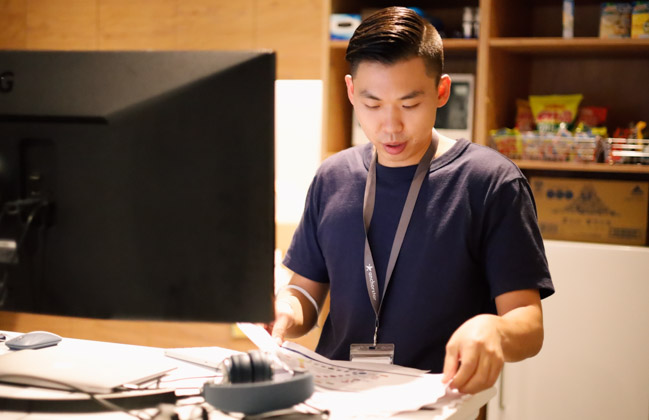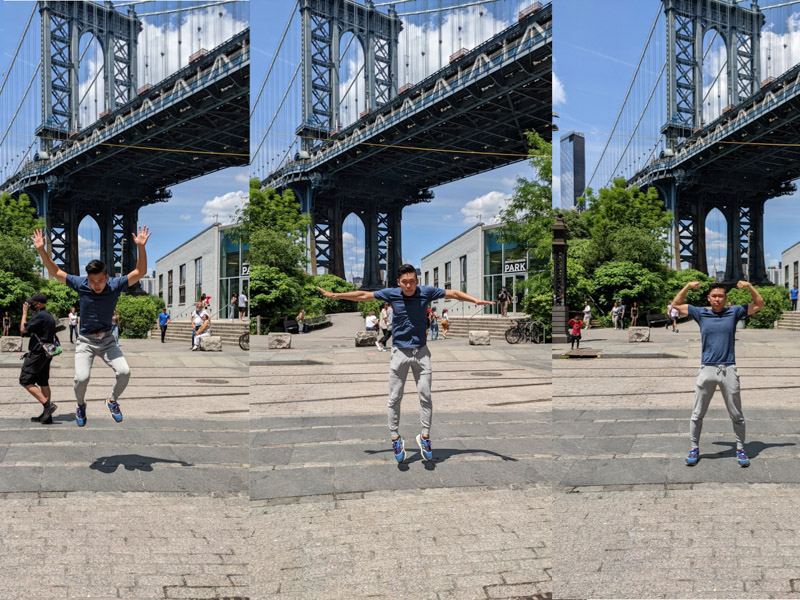*THIS ARTICLE WAS WRITTEN IN JAPANESE AND AUTOMATICALLY TRANSLATED BY DeepL
Employ foreigners living abroad. Bring them to Japan and work with them. Easier said than done. We asked Miku Kanemaki, who is in charge of hiring foreigners at Anchor Star, about the process from visa application to actually moving to Japan and working there.
Q1: I heard that you decided to hire a new foreigner. Please tell us about the process.
I have a Chinese-American (passport is American) teacher who has been teaching English online for a long time. His name is Nelson. Nelson is a great teacher and I referred him to my colleagues and friends with confidence. I was surrounded by people taking Nelson’s classes.
One day, I introduced Nelson to Kodama (Anchor Star representative) and he said, “If he is such a wonderful teacher, why don’t you ask him to come to Japan and start an education business with us? I was surprised to hear this unexpected comment. I had never imagined bringing Nelson to Japan. I was so excited that I immediately set to work to make it happen.
Q2: What is the best way to start hiring foreigners?
First of all, you need to decide what type of employment you will hire, and under what conditions, through thorough discussions with the person in question as well as within the company. Employment in Japan can be permanent (regular employee) or fixed-term (contract employee), and conditions can vary. This is no different from hiring Japanese nationals.
Even when employing a foreigner, the various labor laws apply to both the employer and the employee in exactly the same way as they do to Japanese nationals. There are some areas that differ greatly from foreign laws, so it is necessary to explain them carefully and properly.
Once the company and the foreigner have decided on the type of employment and the conditions of employment, it is time to start preparing for the visa application. In order for a foreigner to work in Japan, it is necessary to obtain a visa.
Q3: What is a visa?
A visa is a certificate of permission from the destination country that certifies, after examination, that the country “permits this person to enter, stay, and reside (stay and live) in Japan. Basically, a foreigner needs a visa issued by a country to enter or stay in that country.
However, for short-term stays, some countries offer a visa waiver system. 1 For example, when entering the U.S., you tell the immigration inspector the purpose of your visit (tourism, business, etc.) and the length of your stay. This is actually a procedure for the Visa Waiver Program. If you look at the stamp in your passport, you will see that it says WT (for short-term tourism) or WB (for short-term business). I have been to the U.S. many times, but I recently did some research and learned about this for the first time.
Q4: Is there a difference between a visa and a passport?
A passport is an “identification card” issued by your country and can be used worldwide. It is different from a visa, which allows you to enter and stay in the destination country. It does not mean that you can enter any country as long as you have a passport.
Q5: Do I always need a visa to work in a foreign country (Japan)?
Yes, a visa is required to work in Japan. A “work visa” issued by the Japanese government is required for foreigners to stay and work in Japan. In order to obtain a work visa, the company where you will work in Japan (the place where you will work) must complete the application procedures for issuing a work visa. Conversely, if you have not decided on a place of employment, you cannot apply for a work visa and therefore cannot enter or stay in Japan.
Q6. Are there many foreigners with work visas in Japan?
Through this process, I felt that Japan, as a country, is not reluctant to create opportunities for foreigners to work in Japan. Throughout the process of recruiting foreigners, the relevant ministries are always cooperative.
Nelson speaks Chinese as well as English, and he enjoys having multilingual conversations with Chinese-speaking clerks at Japanese convenience stores. Hearing this, I feel that Japan is gradually changing.
Q7: Is it difficult to obtain a work visa for Japan?
It would be a lie to say that it is not hard. There are many steps and a lot of work involved. There are documents that need to be gathered, and there are areas that require research. I will probably talk more about this later, but for the work of filling out the application forms, where mistakes are not allowed, and getting the documents submitted to the government, we enlisted the help of a professional administrative scrivener who is a professional in the process.
Q8. Could you tell us about the process of obtaining a work visa?
First, Anchor Star Corporation, the company where Nelson will be working, applies to the Immigration and Residence Management Agency (one of the administrative agencies under the jurisdiction of the Ministry of Justice) for a work visa to be issued. At that time, Anchor Star will collect and submit various documents (company business description, Nelson’s letter of employment conditions, Nelson’s resume, etc.).
If the required documents are complete and the application is received, it is reviewed and if approved, a “Certificate of Eligibility” is issued to Nelson.
Nelson then takes the “Certificate of Eligibility” to the Japanese Embassy in New York, where the visa will be issued. A Japanese government-issued sticker with the word “VISA” will be affixed to Nelson’s passport. This completes the visa process.
This whole process took about 3 months.
Q9. Will the company I work for also be examined?
Yes, of course, the visa applicant himself/herself will be screened, but the company hiring the applicant will also be screened. It was necessary for us to prepare materials that explained in detail what kind of business we were running and what kind of duties we were hiring for. We did not have to submit a business plan or financial statements.
Q10: Are there any differences from hiring Japanese nationals in terms of employment status, insurance, and taxes?
Basically, there is no difference between hiring a Japanese national and a foreign national.
You can apply for a work visa regardless of the employment status, whether it is a regular employee (no fixed term), a contract employee (fixed term), or an outsourcing contract (not an employment contract, but a contract to outsource specific tasks).
If a work visa is issued and you are authorized to work in Japan, social insurance (medical insurance, pension insurance, long-term care insurance, unemployment insurance, and workers’ accident compensation insurance) and taxes (income tax and inhabitant tax) will be collected on the same basis as Japanese nationals.
Therefore, you can get a health insurance card exactly the same as Japanese people. You can also receive insurance treatment at hospitals. Also, even though you will not necessarily stay in Japan forever, for some reason you will be required to join the pension system, and you will really be treated the same as a Japanese national.
Incidentally, you can apply for a refund of the pension you have paid in after your stay in Japan is over. It is a little troublesome, but they are required to join.
Q11: It seems very difficult to prepare all the documents. Is it safe to ask an administrative scrivener?
It is possible to prepare and fill out the documents by yourself without any specialized knowledge, by researching on the Internet or contacting administrative agencies. However, it is really a huge amount of work, so we recommend that you ask an administrative scrivener office that specializes in visa applications to prepare the documents for you.
This time, I also asked an administrative scrivener to help me with the task of preparing the documents. 4 years ago, I did it all by myself once, but I remember it was quite a challenge for a layman.
Q12: What is an administrative scrivener office specializing in visa applications?
You can find them by searching “visa administrative scrivener” on the Internet. Some firms will even communicate directly with the worker in English on your behalf, if necessary, while others will only fill out forms on your behalf, so the range of services varies. Prices also vary depending on the service.
Q13. How much is the fee to pay to an administrative scrivener?
The amount varies depending on whether it is a contingency fee type, where the fee is paid only if a work visa is successfully issued, or an outsourcing type, where the fee is paid for the application work regardless of whether a work visa is issued or not. I have the impression that the former is more expensive. This time, we assumed that Nelson would be issued a work visa without any problems, so we requested the outsourcing service. We asked several companies for estimates, and the market price was between 100,000-200,000 yen per person.
Q14. When it came time to apply, what was the result?
Nelson was able to obtain a work visa without any problems. He will be able to stay and work in Japan for several years. This time, the process went relatively smoothly, but including the time spent waiting for the examination, I think it took three months.
Q15: Is three months normal? How long should we expect it to take?
It was a long period of waiting for the result, and I was anxious because I didn’t hear from them for a month. I think the application process itself went quite smoothly. I heard that the length of the waiting period depends entirely on the timing and timing of the application, and there is no general guarantee that you will be able to obtain a visa in 0 months.
Q16. Once I have obtained a work visa, can I come to Japan already?
Yes, you can. As long as you have a valid work visa sticker in your passport, you can enter Japan.
We discussed with Nelson to set up a schedule for his arrival in Japan, and after consulting internally, we decided on a date for his first day of work. This is the end of our TODO as a company.
Nelson, the person involved, is in a difficult situation. Before coming to Japan, he has to go through the exit procedures in New York, file various applications that have to be done in the U.S., and arrange for his luggage to be sent to Japan. After coming to Japan, he had a lot of things to do, such as making a personal seal, opening a bank account, signing a cell phone contract, and registering as a resident.

Q17. Did you encounter any difficulties or surprises after coming to Japan?
I didn’t have Nelson’s personal seal and seal registration certificate, so the procedures got delayed. The first thing I had to do when I came to Japan was to get a personal seal. Also, opening a bank account was surprisingly difficult. I did a lot of research and was able to open a bank account smoothly at Japan Post Bank. Even if you can open an account, it takes time to receive a cash card. Until then, I had to live with cash on my person.
Q18. Was it difficult to enter the country by Corona? How did you deal with foreigners?
Actually, Nelson got sick soon after he arrived in Japan, and the test results were positive for corona. Because of that, there were delays in opening bank accounts, cell phone contracts, and so on.
If a foreigner tests positive for corona, there are only a limited number of health centers that can respond in English.
When we reported the situation to the public health center, they received many relief supplies for home treatment. They were surprised at the Japanese hospitality. I was also surprised.

Q19. Is this your first time living in Japan?
I have visited Japan several times on vacation, but this is my first time living here. I have just started studying Japanese and can only speak a little. However, I love Japanese content, such as anime and manga, and I have taught many Japanese students like myself, so my interest in Japan was very strong to begin with. I have only been in Japan for 3 months, but I am already quite familiar with the country.
Q20. Is there anything that Nelson is having difficulty with in Japan?
Nelson has just started studying Japanese, and while he can only communicate with gestures, he says, “All first experiences are hard. Receiving a package delivery for the first time, being asked if you need a bag for the first time at a convenience store, going to the gym for the first time. But the second time is fine, he says. The other thing he says is that he has a lot of opportunities to write his address by hand, which is very difficult.
Q21. Looking back on this visa application process, how was it?
Looking back, it was not very difficult. I am sorry. LOL.
Anyone, any company, can apply for a work visa and hire a foreigner. Administrative agencies also provide good support over the phone, and with the help of administrative scriveners, I think the application process will go smoothly.
Q22. What was the biggest lesson you learned this time?
It is that there are many different systems in the world, and when you understand them properly, there are many interesting things to notice.
Recently, I have been interested in geopolitics or how the world works. Just by applying for a visa, as I did this time, I was able to understand what kind of foreign human resources the country of Japan is looking for and what kind of expertise they would like to see utilized in Japan. I felt that the country’s will, or rather, how Japan wants to interact with other countries, is directly reflected in the issuance of work visas.
On the other hand, I learned the power of the system that manages the mobility of human resources, as it skillfully controls who can and cannot enter Japan and how long they are allowed to stay in Japan just by issuing visas.
Q23. At the beginning of the meeting, you talked about starting an education business together.
We have now launched a business English education business for corporate clients together with Nelson, and we will start full-scale services in September. Thankfully, we have already secured several clients, and we are working hard to finalize the content of the service we will provide. We will soon introduce them on anchorstar.com.
Q24: What are your plans for the future?
I’m going to do my best! (Nelson says so in Japanese that he has just recently learned)





